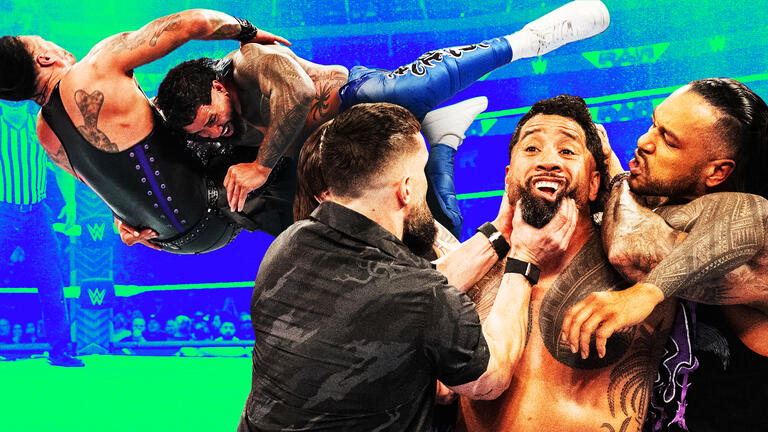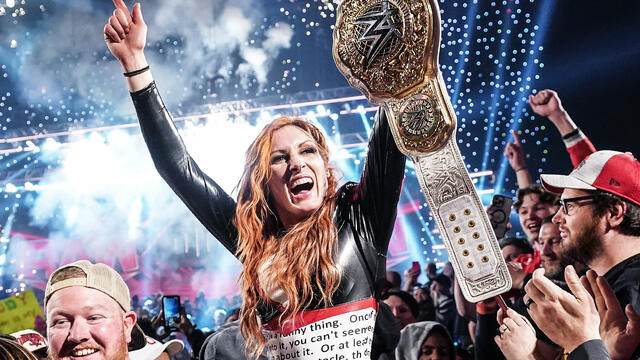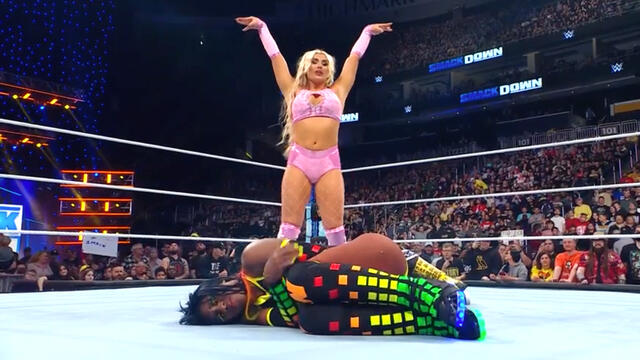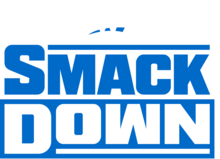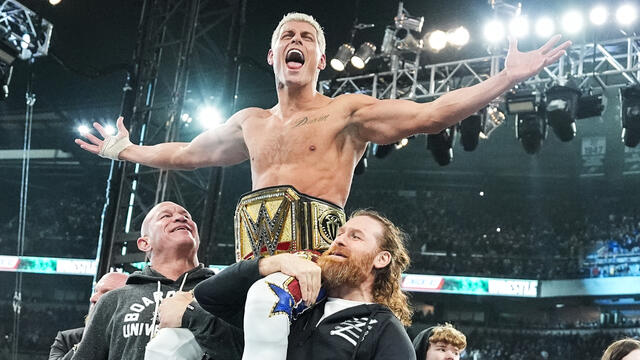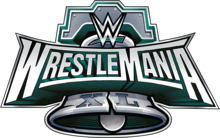'Critic-proof' Foley discusses new novel
Three-time WWE Champion Mick Foley will be signing copies of his new novel throughout the month of September (tour photos - tour video - tour dates). WWE.com caught up with the hardcore legend prior to an August signing to get the scoop on the book:
WWE.com: Tell us about the book.
Mick Foley: Scooter is a novel set in the '60s in the Bronx. At that time, the Bronx was an area that was rapidly changing. It was quickly going from an idyllic place to live where many generations of people had grown up and prospered to becoming one of the worst places in the world. And Scooter's family — the father in particular — insists on staying put at a time when all the other white ethnic groups were fleeing as quickly as possible. And so that, combined with some the hardships the kid faces, including being accidentally shot by his father while watching Game 5 of the '69 World Series, really makes life difficult for him.
WWE.com: Why did you pick this subject matter?
Foley: After 9/11, I really began doing a lot of reading about the history of New York City. It was just kind of strange that I had grown up only 50 miles from the City, and with the exception of heading into Madison Square Garden to see wrestling matches in Manhattan and Yankee games in the Bronx, I really knew very little about the City itself.
It was more or less a place I went into and got out of as quickly as possible. And when I was doing that research, I really became taken with the Bronx because as I mentioned, so many generations of families had grown up there and loved it, and to me, it was always a place that I went to see Yankee games and get out of quickly. This was during the era of the "squeegee guys." So, my first memories of going to Yankee Stadium were of Harmon Killebrew of the Twins singling off the right field wall and my mother yelling at the squeegee guy to get away from us. It seemed kind of odd because it seemed like the guy was doing us a favor.
WWE.com: Why did you name your protagonist after former Yankee shortstop Phil Rizzuto (who was nicknamed Scooter)?
Foley: You know, he was one of those icons from my childhood. We grew up loving the guy, but if you happened to not be a Yankee fan, Phil's appeal was kind of lost. So, I don't know if he's an acquired taste or not; he was somebody who you either loved or disliked.
WWE.com: When's the book tour getting underway?
Foley: The book tour started August 23. And the first book signing was August 25, in Madison, Conn.
WWE.com: How did the publishing of this book come about?
Foley: This was something I started working on in 2002. I actually started it on my trip to China a few years ago for Operation Smile. This project actually began as a short story on that trip. From my house to the hospital in China was a 42-hour trip. As you can imagine, being my size and traveling all that way in coach was a little uncomfortable. So, I began writing this story, and then realized two things: One, I felt as if I had a novel in there somewhere and not just a short story. And the second thing I realized was that if I was going to write about baseball and didn't really know my stuff that I'd be crucified by baseball fans.
Ultimately, I wanted to write a story that non-baseball fans could enjoy as well, but it's kind of like Field of Dreams. You don't have to be a baseball fan to enjoy it, but when they talk about Shoeless Joe, the Shoeless Joe stuff better be right on the money or else baseball fans will be real unforgiving. So, I spent about six months doing nothing but reading about baseball and the history of New York.
WWE.com: Your first book was first written on notebook paper on flights between wrestling live events. Did you have dedicated time for this project, or was this also done in between other stops and appearances?
Foley: No. This was the first book I wrote entirely at my house. I don't know if that's reflected in the quality of it or not. It was actually kind of a trying time, as my wife was having a difficult pregnancy and I would write from about 9 p.m. to about 5 a.m. every morning. Then, in order to help her with the children, I'd watch after little Mick, who was a baby then. I'd watch him from about six o'clock to eight o'clock.
So, although in theory I was supposed to get my eight hours of sleep somewhere during the day, that very rarely happened. So, I was tired most of the time, and it seems strange to say this, but I think the writing lifestyle is less healthy than the wrestling lifestyle. Both of them leave you at a loss for sleep, but at least when you're on the road, you do have an occasional day when you can in and take it easy. Whereas, when you're home being Mr. Mom and The Writing Guy, there was very little time for that.
WWE.com: So, you disciplined yourself to get the book written?
Foley: Yeah. I think I work best when I'm fully dedicated to it. I guess I'm not the type of guy who dabbles an hour here and an hour there. I like to apply myself pretty completely.
WWE.com: Did you feel like you had the book totally planned out, or did things take on a life of their own?
Foley: Well, there were always twists and turns that I didn't conceive of originally, but I did have an outline and different things that I thought I'd try to accomplish in each chapter.
WWE.com: Will the Yankees make the playoffs this year?
Foley: Man, I'm watching pretty intently. This would be the worst pitching staff to ever make the playoffs. If they do, I'm afraid they're not going to go very far because it's awfully tough to beat good teams consecutively. I hope they make it because (Yankees pitcher) Al Leiter has a copy of this book, and maybe it'll inspire him in some way.
WWE.com: How have you felt about the way Scooter has been received so far?
Foley: Well, several authors have read it. I feel like I've finally been let into the club. I know along the way there will be some reviewers who will take their shots at me and that's kind of expected because coming from a wrestling background makes me a pretty easy target to have some fun with.
I've realized that it's a lot easier for reviewers — who are in many cases frustrated writers — to show off their writing talents with a negative review. It's a lot more difficult to really "get it" and to write a positive review. That's when I was so inspired when (Hollywood screenwriter and acclaimed writer) Richard Price gave me a call out of the blue. I had never met him, but I had enjoyed his work, and I sent him and about nine other authors a manuscript. So, when he called and said that he was really enjoying it and just wanted to finish up before he got back to me, that really made my day. His quote (on the Scooter book jacket), you know, I told him later that it made me feel critic-proof because obviously there's something there to be gotten if somebody looks hard enough. And so, I just assume that if somebody doesn't get it that it's not my fault. Because it's obvious that it's there for someone who has the least little bit of insight.
WWE.com: Do you feel like you've gotten support from Knopf, your publishing company?
Foley: Yeah. I'm kind of glad in a way that (previous novel) Tietam Brown wasn't a big success. Don't get me wrong. All things being equal, I wish it was, but I approached them with the manuscript for Scooter without a whole lot of leverage. Within the publishing industry, Knopf is very highly regarded. They've had Pulitzer Prize winners and Nobel prize winners in literature coming from there, and the last thing they need is to take a pro wrestler strictly because he had a fan base from wrestling books. So, the fact that my editor took this meant a lot to me. It showed that she had a lot of faith in me. Although she only took it after I did some pretty drastic re-writing — as was the case with Tietam Brown as well.
WWE.com: Were you comfortable with that?
Foley: Yeah. I fought it for a few days, and then thought it over and then realized that she was right. And I'm reading the book one last time before I got on the road, and retrospect, I'm very glad that she suggested the changes that she did.
People ask me what the difference between wrestling and writing is, and I'd say the biggest difference is, among other things, that in sports-entertainment, I'm driving down the road at 3 a.m. and I have an idea, and then I'm doing it in front of a worldwide TV audience of tens of millions the next day. In writing, you have an idea, you let it sit for six months, you take many months to put it onto paper, it gets looked at, revised and ultimately it might be three years before someone actually looks at your idea and is effected in some way. And even then, it's a fraction of the audience.
WWE.com: Has this book been taking up all of your time?
Foley: No. The book hasn't dominated my life at all. I guess it did for the time I was writing it, but I don't feel driven like a lot of writers to be writing all the time. Once I have that idea out, I wait for another one to really inspire me and keep me up at night, and that has not happened. I've always got projects I'm working on and things I'm doing, but the writing is nice because I can really commit myself to it when I have an idea, and then when I'm off, I have time to spend with the family and do volunteer work.
WWE.com: Anything else you'd like to tell your fans?
Foley: Just that I hope to see you out on the book tour! All the dates are online (click here for the dates). Thanks.
WWE Shows Latest Results
SmackDown results, April 19, 2024: Tiffany Stratton introduces Bayley and Naomi to Tiffy Time with a sneak attack
Full ResultsWWE NXT results, April 16, 2024: Trick Williams defeats Carmelo Hayes in a Steel Cage Match
Full Results